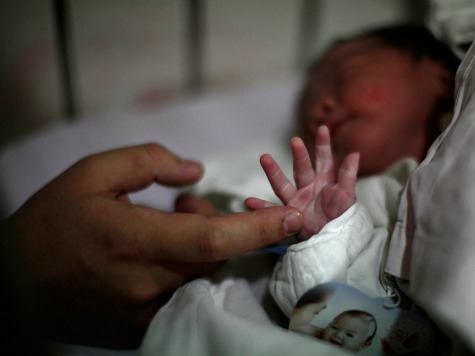Germany has a new regulation, effective November 1, that will allow parents of babies who lack gender-determining anatomy to be noted in the country’s birth register without being marked either male or female. The German Ethics Council conducted a study and concluded that the rights of intersex individuals against irreversible surgeries needed to be protected. The new law asserts, “If a child cannot be designated male or female, then they should be entered on the birth register without such a status.”
Germany’s 2007 government data found at least 150 intersex babies born in the country each year. A German Interior Ministry spokesman said, “A key aim of the new rule is to relieve parents of the pressure of having to decide a sex straight after the child’s birth, and thereby agreeing overly hastily to medical procedures to settle the child’s sex.” The reason a third gender wasn’t invented for the register? The spokesman said it would complicate German laws on marriages and partnerships.
Silvan Agius, policy director at the group Equality for lesbian, gay, bisexual, trans and intersex people in Europe (ILGA), said, “This is an interesting move but it doesn’t go far enough. Unnecessary surgeries will likely continue in Germany with devastating consequences… we live in a world where having a baby classified as ‘other’ is still considered undesirable.”
In their 2012 report, the Ethics Council noted a case where a baby was castrated in 1965 at the age of 2.5 months without parental consent. “I’m not a man, nor a woman … I remain a patchwork, made from doctors, injured and scarred. I have to reinvent myself if I want to continue to live.”

COMMENTS
Please let us know if you're having issues with commenting.